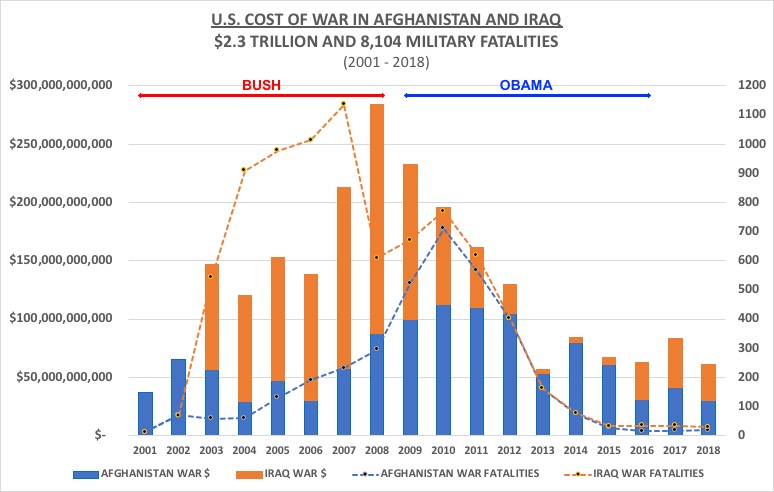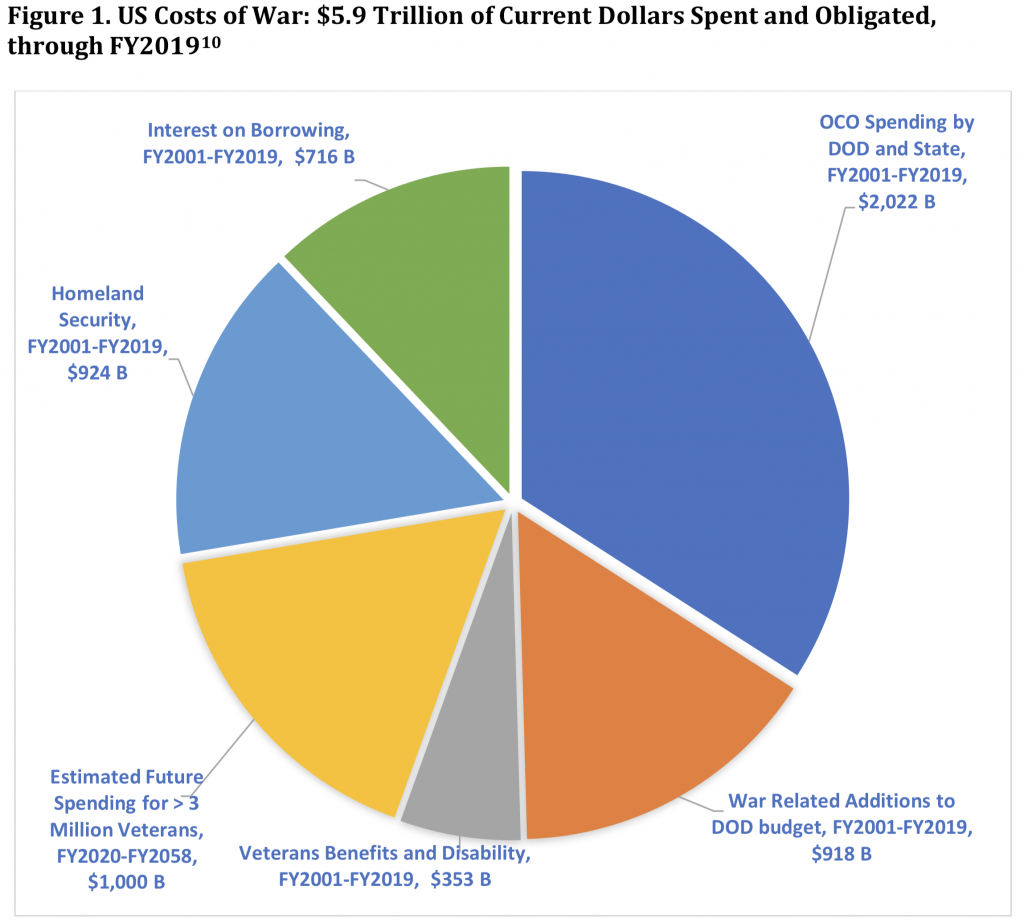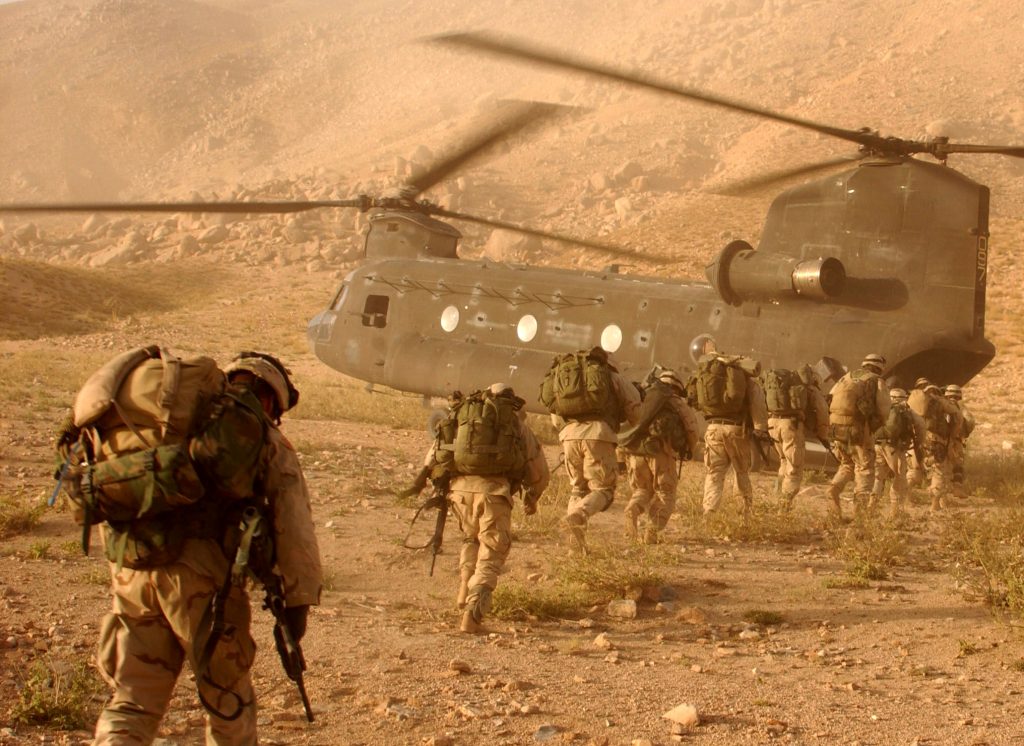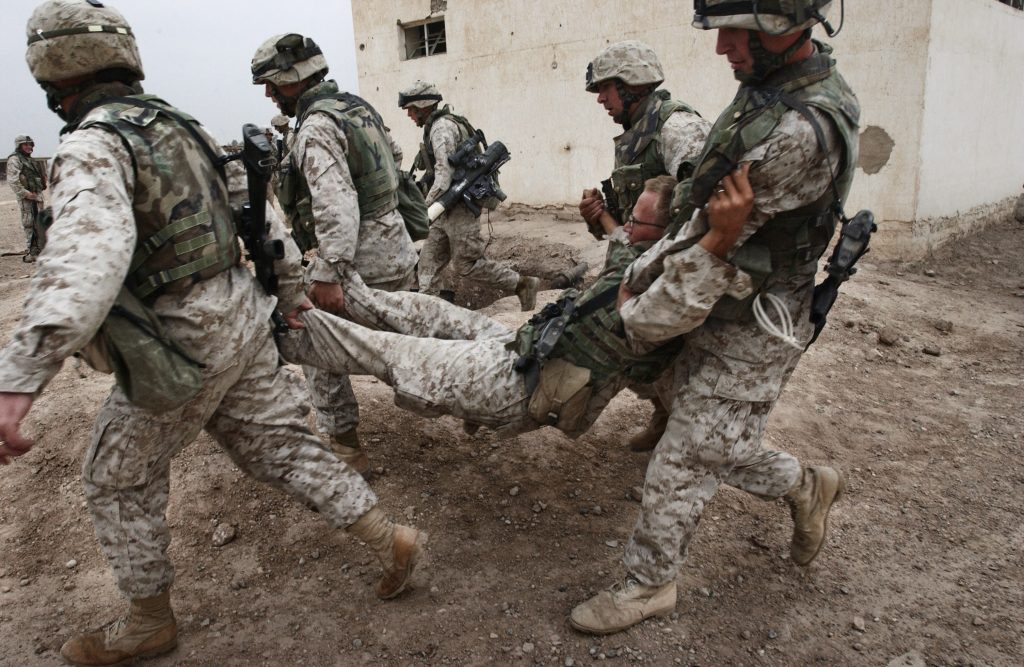AMERICA NEEDS A ‘WIN OR COME HOME’ STRATEGY …
To paraphrase John McCain: After 18 years of war in Afghanistan and Iraq, should the taxpayers of America be satisfied with a stalemate? We don’t think so!
Americans naturally expect a better outcome when the cost of those wars — in treasure and blood — has been so high.
THE COSTS
From 2001 through 2018, the United States spent 2.3 trillion dollars and suffered 8,104 military fatalities in fighting the wars in Afghanistan and Iraq.

A recent study titled “Costs of War” by the Watson Institute at Brown University pegs the comprehensive financial cost of the post-9/11 wars, after adding future veteran health care, Homeland Security spending and interest on the debt, to be almost 6 trillion dollars.

The study also found that human costs of post-9/11 wars continue to rise:
More than 244,000 civilians have been killed as a result of the fighting
More than 480,000 people have died due to direct war violence, and several times as many indirectly
The wars have created 10.1 million refugees and displaced persons
All of these staggering statistics raise many questions about U.S. national priorities and counterterrorism strategy going forward.
AFGHANISTAN

A majority of Americans supported the war in Afghanistan to avenge those killed and wounded by the Al Qaeda terrorist organization in the following attacks:
February 1993 — 6 killed (1,500 wounded ) in bombing of World Trade Center in NYC.
November 1995 — 5 killed (60 wounded) in bombing of military camp in Riyadh, Saudi Arabia.
August 1998 — 224 killed (5,000 wounded) in bombings of U.S. embassies in Nairobi, Kenya and Dar es Salaam, Tanzania.
October 2000 — 17 killed (39 wounded) in bombing of USS Cole in Yemen.
September 2001 — 2,996 killed (>6,000 wounded) in airplane suicide bombings of World Trade Center in NYC, Pentagon in Washington, D.C. and crash in Shanksville, Pennsylvania.
The United States was justified in going to war to defend itself by attacking Al Qaeda and their enablers, the Taliban, where their operations were headquartered in Afghanistan.
But the American people have every right to ask our intelligence, military and political leaders the following questions:
Why has it cost so much to fight terrorists and tribal mountain men operating out of caves with relatively unsophisticated weapons?
We have decimated Al Qaeda in Afghanistan, but why have we achieved only a stalemate with the Taliban after 18 years of fighting?
Why hasn’t our strategy worked to train and develop local government forces to defend themselves?
What will it take to end the war victoriously and bring our soldiers home?
IRAQ

Most Americans believe invading Iraq in 2003 was a mistake, as the pretense of Saddam Hussein possessing weapons of mass destruction and the objective of bringing democracy to the Middle East were unequivocal failures. The Iraq war was by far the least justified and most costly.
Again, the American people have every right to ask our intelligence, military and political leaders the following questions before agreeing to more expenditures of blood and treasure:
How can we trust intelligence leaders after getting us into a war under false pretenses?
How can we trust military leaders who are not decisively defeating our enemies on the battlefield?
How can we trust legislators who voted for the Iraq war, still advocate for nation building, and don’t support bringing our troops home?
Don’t get us wrong … We support our brave intelligence officers and military troops, as well as the idea that it is better to fight our enemies overseas than here. And we understand that asymmetric warfare is always going to be more expensive for the defender than the offender. But FH questions why we haven’t gotten a better return on our precious and valuable investments.
Otherwise, as the Watson Institute study concluded, “The fact that the US keeps spending huge sums for wars that, at least in Afghanistan, are in a stalemate, and in Iraq and Syria, are unresolved, is a long-term budgetary problem which will affect future generations.“
Safety is a foundational necessity for a thriving democracy, so the U.S. will always spend whatever it takes to protect its citizens. But just think of all the national priorities that could have been fulfilled with just a fraction of the trillions of dollars spent in Afghanistan and, especially, Iraq — health care for the uninsured, financial assistance for the poor, housing for the homeless, better education for the youth, job training for the unemployed, environmental protection for us all, etc.
Americans should demand their government leaders pursue a ‘win or come home’ strategy to cease endless, costly wars.

“It’s becoming increasingly tribal,” Dunlap says of the at-war force in our chickenhawk nation, “in the sense that more and more people in the military are coming from smaller and smaller groups. It’s become a family tradition, in a way that’s at odds with how we want to think a democracy spreads the burden.”